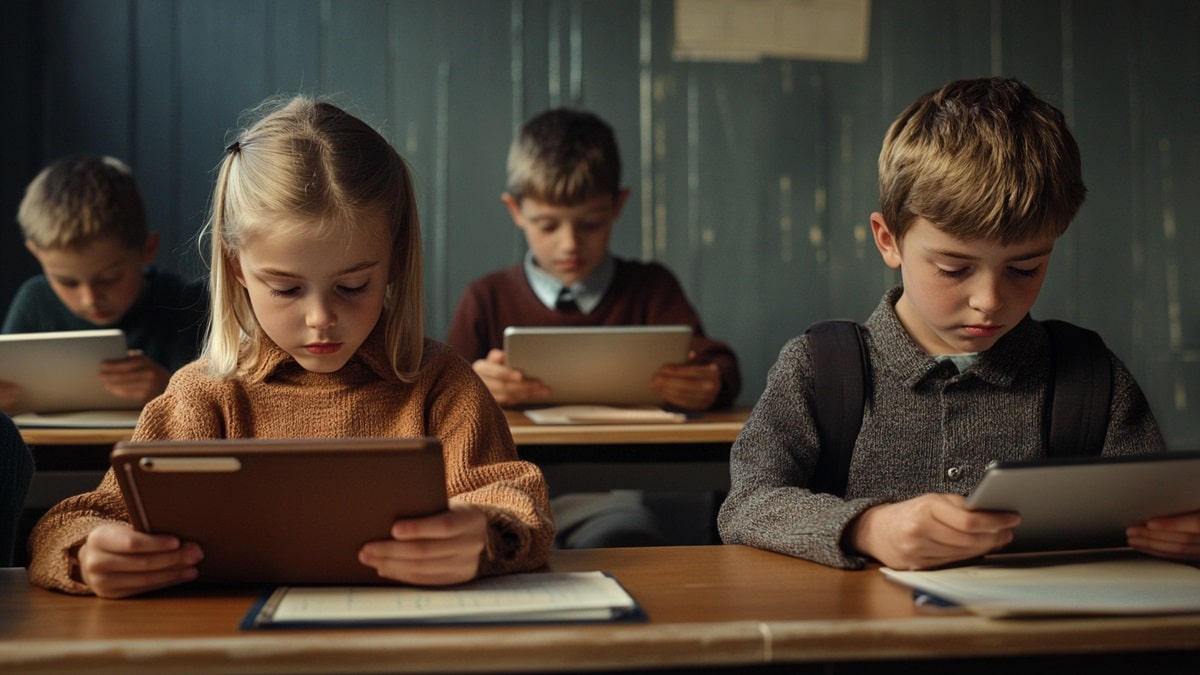For years, the debate raged on. Was it sleep? Processed food? Teaching quality? Social media? Now, Sweden’s national education authority has delivered a clear and chilling verdict: the main factor behind the country’s plummeting student performance is screen exposure — and everyone missed it.
The findings come after a comprehensive multi-year study across hundreds of schools, examining habits, results, and neurological data. The conclusion is blunt: screens, not just at home but increasingly in the classroom, are doing measurable harm.
A decline that became impossible to ignore
Sweden has long been seen as a model in education — modern, inclusive, tech-friendly. But in the past decade, results in reading comprehension, maths, and memory retention have steadily declined. Teachers sounded the alarm. Parents noticed changes. Yet the response remained vague: reform the curriculum, hire more assistants, modernise further.
Now the data points in a different direction.
“We were looking everywhere but the most obvious place,” admitted Anna Ekström, former Minister for Education. “The screens we embraced — both in schools and in bedrooms — are undermining the foundations of learning.”
What the data actually says
The National Agency for Education analysed over 2,300 students aged 10 to 16 across 38 municipalities. The key results:
-
Students who spent more than 3 hours per day on screens outside school scored 30% lower on average in reading tests
-
Those using screens for entertainment right before bed had a 45% reduction in memory performance the next day
-
Even digital learning tools, when overused, correlated with increased distraction and reduced comprehension
In one shocking case, a class that switched back to paper textbooks after 5 years of digital learning saw their average reading scores rise by 18% within a single semester.
How did this happen?
Sweden was one of the first countries to push for fully digital classrooms, under the promise of innovation and accessibility. By 2018, 90% of schools had replaced physical textbooks with tablets or laptops. Homework went online. Tests went online. Even parent-teacher communication moved to apps.
But with this shift came constant connectivity, notifications, multitasking, and what neuroscientists now call “cognitive fragmentation.”
“The human brain — especially in development — isn’t wired to switch tasks every 15 seconds,” explains Dr. Henrik Linder, a cognitive researcher from Uppsala.
“We’re raising a generation whose attention span is not just shrinking — it’s being rewired.”
What Sweden plans to do now
In a rare moment of policy reversal, the Swedish government has already announced emergency measures:
-
Reintroducing printed textbooks across all primary and secondary schools
-
Limiting classroom screen time to essential subjects only
-
Launching public awareness campaigns for families about screen hygiene
-
Introducing nationwide “digital fasting days” in schools starting next term
“This isn’t about rejecting technology,” said current Education Minister Lotta Edholm. “It’s about reclaiming focus, depth, and mental resilience.”
The global ripple effect?
Sweden’s findings are already being cited by researchers in the Netherlands, Germany, and Canada. Several school districts in the UK have requested access to the raw data to compare it with their own students’ results.
The irony isn’t lost on many observers: the country once hailed for its digital-forward education model is now the first to publicly declare it a failure.
Are parents ready to hear this?
The Swedish study closes with a simple, urgent statement: “Screens are not neutral. Their impact on cognition is now undeniable.”
For years, the warning signs were there — shorter attention spans, rising anxiety, lower literacy — but were dismissed as “part of modern life.” Now, with evidence piling up and governments taking action, one question remains:
How long will the rest of the world wait to admit it too?

